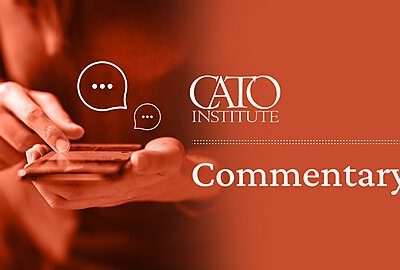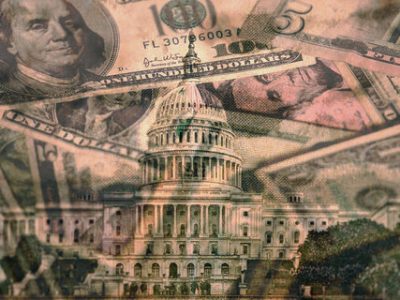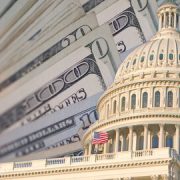
This Thanksgiving comes in the wake of an emotional election that left some celebrating and others mourning. In such a charged political moment, it can be hard to focus on the big picture. Amid the continued effects of pandemic-era inflation, the ravages of natural disasters such as Hurricane Helene, intensifying culture wars, not to mention ongoing actual wars in the Middle East and Ukraine, some may find it hard to feel thankful even during a holiday devoted to thankfulness. Yet there remain many real reasons for gratitude—regardless of whether your preferred candidate won or lost.
Rising prosperity. Extreme poverty characterized the life of most of our ancestors. When George Washington prayed that “the great Lord [might] grant unto all Mankind … temporal prosperity” in his Thanksgiving Proclamation in 1789, the average income in the United States, adjusted for inflation, was lower than that in Kenya today. Extreme poverty still plagued over 70 percent of people around the world when Abraham Lincoln made his own Thanksgiving Proclamation in 1863. Today, that figure has fallen to less than 9 percent. In 1990, when I was born, over 2 billion people lived on less than $2.15 dollars a day (in 2017 purchasing power parity dollars); today, fewer than 700 million endure that level of poverty, as more than 1.3 billion have risen into higher income brackets. Thanks to rising incomes, literacy and electricity access are spreading, while malnutrition and unsanitary conditions are rarer. And although there is still more progress to be made, rising prosperity thus far has been widely shared, making the world wealthier and more equal. The rate of progress has in some cases stalled amid pandemic-related disruptions, but the long-term trends are still heartening.
Health and abundance. Many Americans will gather with their families for the Thanksgiving holiday. One underappreciated cause for thankfulness is that we now enjoy more years with our loved ones, alive and well. After being flat for most of human history, life expectancy has risen exponentially. While the rate of increase has slowed in the past three decades, the long-term gains are nonetheless dramatic. Death rates are falling, even among those with cancer. What’s more, people spend less of their lives working than in the past. Also, we are earning more at jobs that are safer and more interesting than the endless grind of agricultural labor endured by the majority of people in the past—including the storied Plymouth pilgrims and the Wampanoag tribe with whom they feasted during the first Thanksgiving in 1621. Speaking of feasts, farmers now produce more than enough food to feed everyone on the planet even as the population has grown, making famine a thing of the past outside of areas disrupted by war or natural disasters. The 17th-century pilgrims would have a hard time comprehending that food is so plentiful today that obesity presents a bigger problem than starvation.
Technological advancement. We live in an era of technological wonders. In 2024, for the first time in history, a paralyzed man was able to play chess online using a brain implant. This year, the world’s largest 3D printer debuted. This past year also saw artificial intelligence advances aid everything from breast cancer detection to archeological discoveries. And there has been much progress toward the final frontier. In 2024, Japan became the fifth country to achieve a soft moon landing, and the US private sector landed the first-ever commercial vehicle on the lunar surface. Astronomers detected water molecules on asteroids for the first time. A SpaceX Starship rocket booster landed safely in the mechanical arms awaiting it back at the launch pad.
Environmental stewardship. Farmland has peaked and is shrinking even as we produce more food, while land set aside for nature is increasing, as is support for nuclear energy (currently the cleanest, though not the cheapest, scalable energy source). Harmful emissions have decoupled from economic growth in many countries. A 2024 Nature study found that the pace of total global emissions growth may have plateaued, and some scientists, such as the University of Oxford’s Hannah Ritchie, now believe the world has passed “peak pollution.” Many beloved animal species whose numbers were dwindling are making a comeback. Thanks to the growth in their numbers, the Iberian lynx wildcat, the red-cockaded woodpecker, and the Apache trout all officially ceased to be endangered in 2024. And as developing countries grow wealthier, the world will very likely see further gains in environmental quality.
Freedom. Last, but certainly not least, remember the policies and institutions that underlie so much of human progress. In the United States, there is even more reason to contemplate these pillars of the modern world. As the late Cato Institute distinguished senior fellow David Boaz once wrote as Thanksgiving neared, let us remember to “step back and consider how America is different from much of world history.” Our country helped to birth modern liberal democracy, which has rapidly spread. True, authoritarianism is rising in many parts of the world, but democracies still outnumber autocracies. Finally, consider freedom, which strongly correlates with democracy. The latest Human Freedom Index numbers show that liberty is in retreat globally, “including significant declines in the rule of law; freedom of movement, expression, and association and assembly; and freedom to trade.” Yet the United States is still among the freest countries in the world, especially when it comes to economic freedom. It is that freedom and the American spirit of entrepreneurship that drives the largest economy in our beautifully interconnected world and produces riches beyond our forebears’ wildest dreams. The United States also enjoys robust protections for freedom of speech and assembly, freedom of conscience and religion, and many other freedoms we should treasure and defend. Lincoln’s Thanksgiving Proclamation celebrated, among other things, “our adherence as a nation to the cause of freedom and humanity.” When you count your blessings this Thanksgiving, remember to include freedom among them. Happy Thanksgiving!










